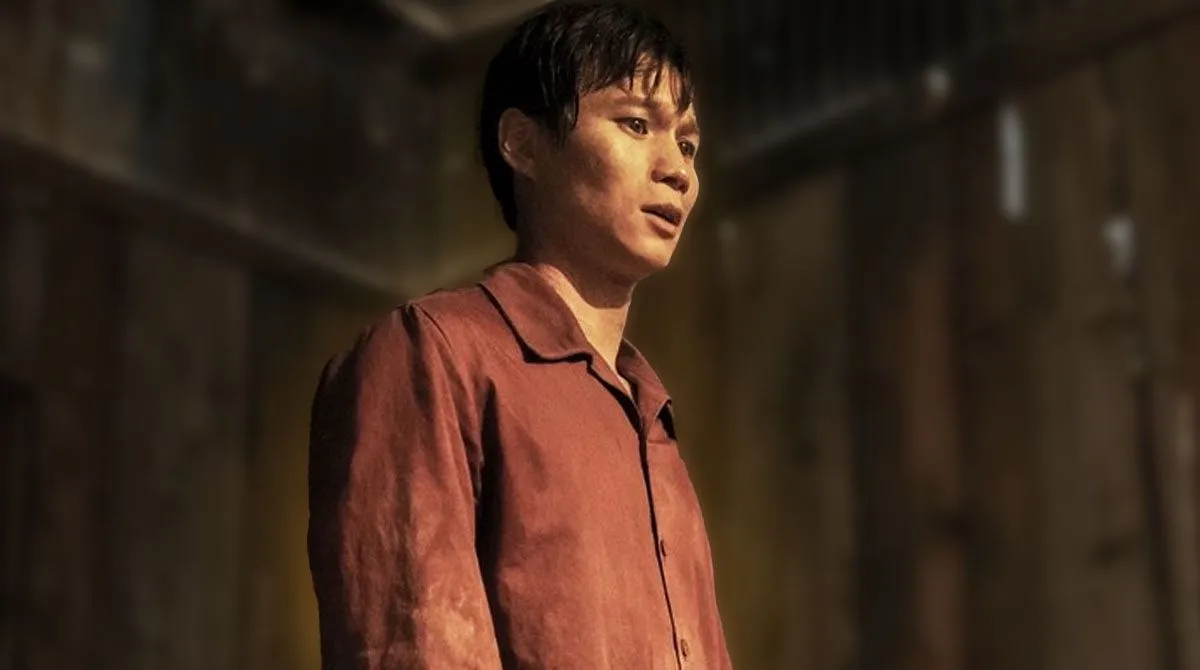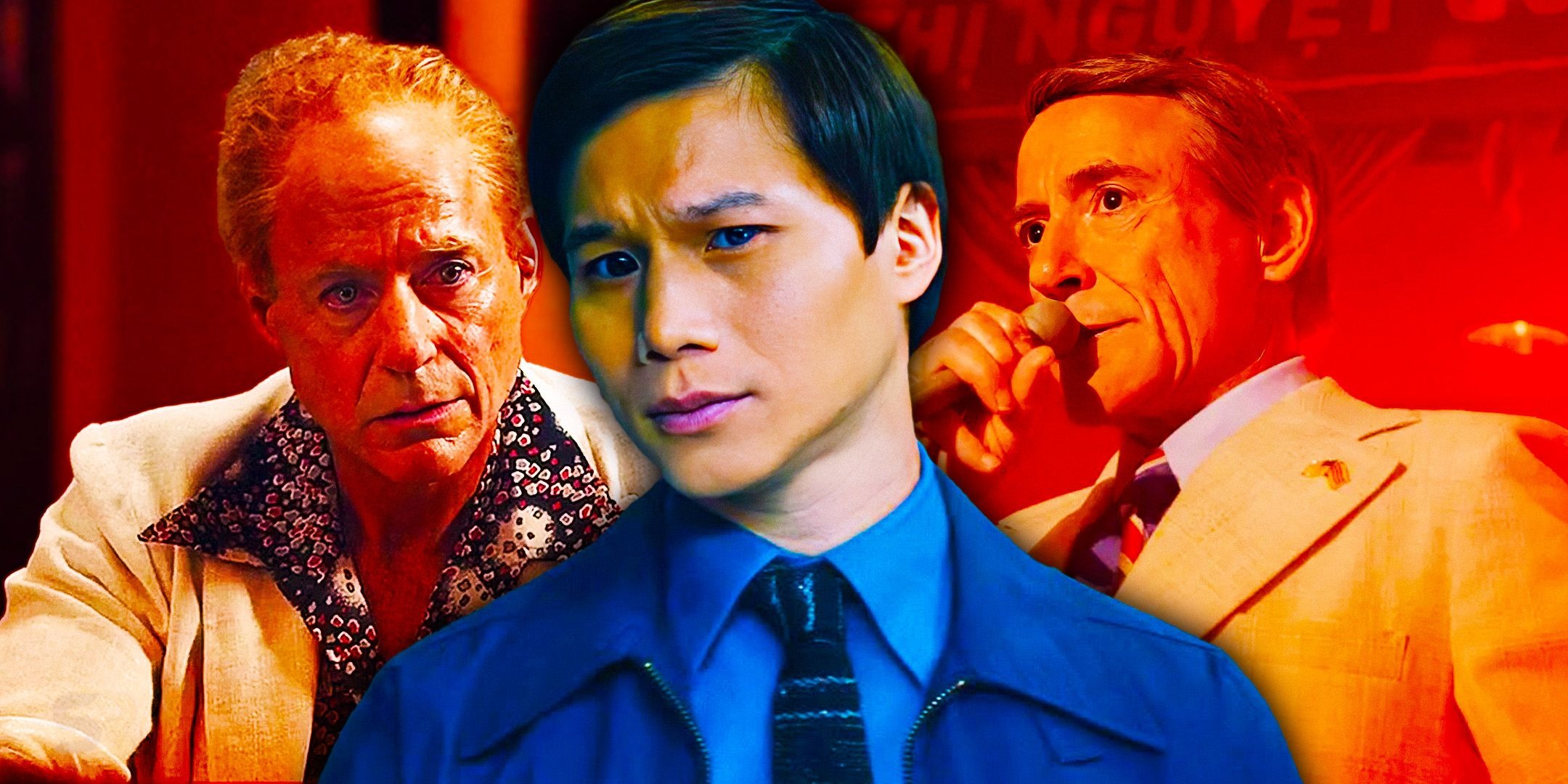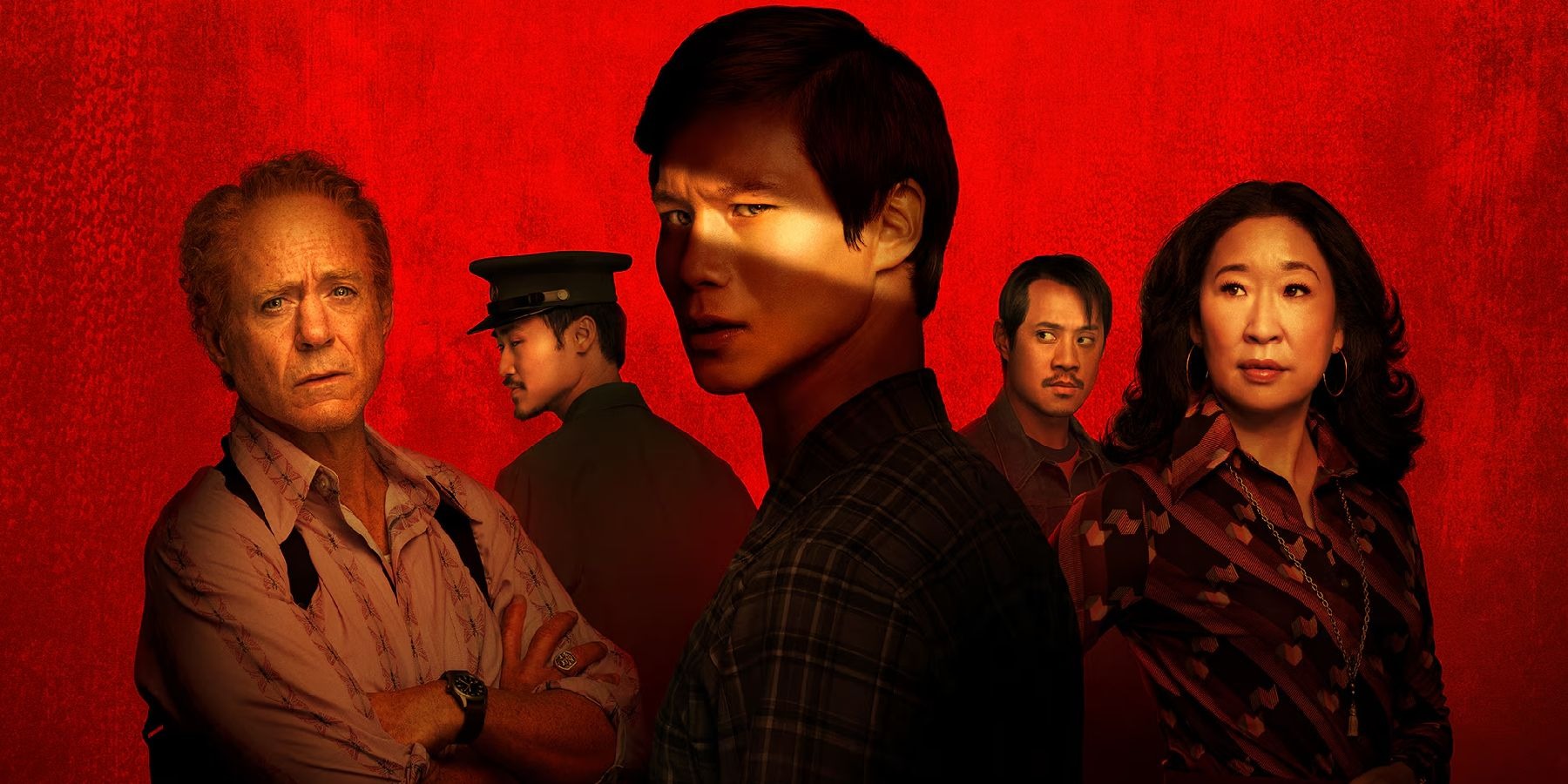Instead of taking a straight path, the ending of The Sympathizer turns things in different directions, making the final scenes quite complex. As soon as the Captain and Bốn land in the reeducation camp, the story takes a darker turn, and the Captain starts to rethink everything.
When he confronts the camp commissar, things quickly escalate. The masked official later orders the Captain to be tortured, hoping to dig deep into his buried memories. As things get worse, the Captain finally finds out that this so-called commissar is Mẫn.

Man is his childhood friend who had become physically deformed not long after the Captain left Vietnam. This moment opens the door to long-hidden memories, including the truth about who his father was.
Mẫn pushes the Captain to finally admit something deep—he repeats Ho Chi Minh’s statement that “nothing is more precious than freedom and independence.” With that confession out, Mẫn decides to release him. The Captain then puts on Mẫn’s mask and the uniform of another soldier, using this disguise to escape with Bốn.
The two of them board a boat with other characters from The Sympathizer and set sail. As they move away, the Captain glances back and sees a crowd of Vietnamese souls standing along the shoreline.
How True Was The Captain’s Confession?
The Captain Is An Unreliable Narrator
Rather than having a straight and honest confession, the series shows that the Captain may not have been fully truthful. Throughout The Sympathizer, scenes regularly return to his moments in the reeducation camp, using his confession as a link.
But the way things end suggests that the Captain might not have given a full or reliable account of events. During one of the torture scenes, it’s revealed that some things he claimed earlier were not exactly how they happened.
For instance, he initially said he tried to save a woman being tortured with a Coke bottle. But the truth shows he was only watching while the woman was sexually violated using the same bottle. Because of this discovery, a lot of the other parts of his confession start to feel questionable.
Even the version of events he gives about life in the reeducation camp is doubted by one of the officials there. As the story continues, the Captain often admits he is unsure, that his memory is failing, or that he might be imagining some things.
These small details suggest that his role may have been more shameful than he wants others—or even himself—to believe.
Why Robert Downey Jr. Played 5 Different Characters In The Sympathizer
He Represents Systems Of Power
Instead of casting different actors, the series made Robert Downey Jr. play five separate characters, with the last one, a priest, showing up in the final episode. Although each of these people looks the same, the idea is not that they are one man. Their similar appearance is meant to highlight something deeper.
Each of these characters stands as a figure of white authority that the Captain either admired or looked up to during his time in America. But with time, every one of them ends up betraying him, which shows how these figures stand for the powerful institutions and unfair systems that the Captain is constantly trying to push against.
The Meaning Of “Nothing” Being More Precious Than Freedom & Independence
The Answer Hides Within The Quote
Rather than a simple phrase, the line “Nothing is more precious than freedom and independence” becomes one of the most complex parts of The Sympathizer’s ending. Throughout the last episode, the Captain reflects on the meaning of this statement by Ho Chi Minh.
At first glance, it looks like the quote is celebrating freedom and independence as the highest values someone can have. This is the understanding that Mẫn wants to force out of the American-influenced Captain. But the deeper truth seems to be something else entirely.
The quote does not only lift freedom and independence above everything else. What it suggests is that nothing—nothing-the idea of absolute emptiness—could be seen as more valuable than any ideal, including freedom or independence.
The Captain eventually understands that the revolutionaries like Mẫn have taken this belief seriously. That’s why they created reeducation camps, which take freedom away instead of giving it. The contradiction between their ideals and their actions becomes the core of the Captain’s realization.
The Real Meaning Of The Sympathizer’s Ending

What Is A Revolutionary?
Rather than offering one simple message, The Sympathizer brings up different ideas around the meaning of being a revolutionary. Even though the Captain ends up turning against the side he once supported, he still sees himself as a revolutionary.
His loyalty no longer lies with a system, but with the oppressed people who continue to suffer under that system. He comes to understand that he had been fighting for a cause that had lost its moral direction, and now he chooses to realign himself with the true fight for justice.
Co-creator Don McKellar gave some insight into this change during a chat with Slate: “…the lesson is disillusionment. It’s about him, the Captain, realizing that he was deluded in his idealism and that he’d been suppressing his humanity for the sake of a cause that couldn’t fulfill its promise.
That’s sort of a depressing lesson. But of course it’s liberating, too. That’s the other side, that facing the nothingness is a sort of precondition to his consciousness and learning that there’s a future ahead for him and his people.”
The last scene, where the Captain sees the spirits on the beach, brings all these ideas together. He no longer fears Sonny or the Major, who used to haunt him. This time, he stands beside them, along with other spirits watching from the shore.
These lost souls are now part of the reason he fights, and their presence marks a new chapter in the Captain’s journey. The ending shows not closure, but the beginning of something new for him.



